The coronavirus crisis has given many municipalities a technological development boost. Others are already benefiting from their modern standard. Four role models from the "Smart Cities Pilot Projects" competition run by the German Federal Ministry of the Interior and KfW.
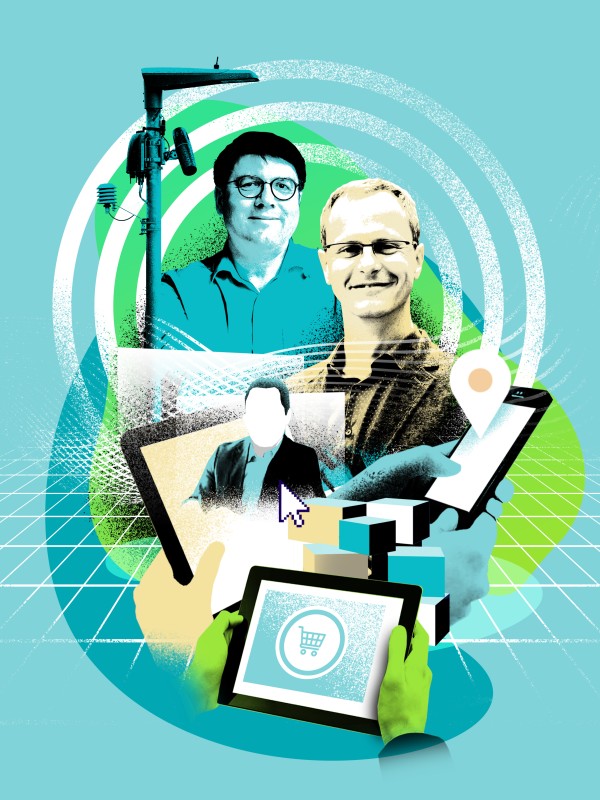
As winning Smart Cities municipalities in the first round in 2019, Kaiserslautern received EUR 15 million from the Federal Government, Gera received EUR 8 million. Martin Verlage (left) and Thomas Schimmel are making something of it.
They created TV content on the spot in Solingen City Hall during the coronavirus crisis. An office on the third floor became a provisional studio. City officials and experts explained the protective measures and answered citizens’ questions online. The hour-long format: “Mensch, rede mit! – Rathaus im Dialog” programme (Join the Conversation – Dialogue with City Hall) ran for three months. At first daily, then weekly, on YouTube and Facebook.
The live stream was one of many digital answers to the challenges of the pandemic, which the smart cities of Solingen, Kaiserslautern, Ulm and Gera did an exemplary job handling. The four cities are among the first 13 municipalities and municipal associations that the German Federal Ministry of the Interior, Building and Community (BMI) along with KfW supported last year as part of the “Smart Cities Pilot Projects” competition. The Ministry of the Interior, Building and Community and KfW will make the grants now totalling EUR 820 million available in four phases.
The four cities’ experiences have been positive. “The need for digital solutions rose rapidly”, says Martin Verlage, Managing Director at KL.digital, a subsidiary of the city of Kaiserslautern. Sabine Meigel, Managing Director of the Digital Agenda department in Ulm, is well aware: “The Corona-Warn-App made it acceptable to discuss privacy.” Thomas Schimmel from the Office for Central Management in the city of Gera thinks that “digitalisation makes it easier to handle crises.” And Dirk Wagner, Director of Administration at Solingen City Hall sums it up this way: “We are noticing a cultural shift when it comes to handling digital projects.” The statements match the results of the KfW Municipal Panel 2020, which surveyed 440 treasurers in April in Germany. 91 percent of them assume there has been a digital boost caused by the coronavirus crisis.
Paperless work in Solingen
Solingen was already able to fall back on good technical infrastructure when COVID-19 reared its head: all administrative buildings are connected to broadband and have wireless networks. 850 of the 2,000 municipal administration employees were able to work from home, mainly using hardware from the municipalities; before the coronavirus, 250 were working from home on average. Parliamentarians in Solingen use paperless methods to work as all documents are available on tablets. So it was easy to organise committee meetings as video conferences. City council sessions were streamed live.

“We are noticing a cultural shift when it comes to handling digital projects.”
The new city app “Mensch, Solingen” had nothing but coronavirus content for several months. Five digital information displays, which the municipalities will place in the city centre as part of the Smart Cities project, stood in the entrance areas of important administrative buildings while they were closed to the public. The online municipal services are largely well-received according to Dirk Wagner’s experiences: “Before we thought it would be a monumental task. Now it simply happened due to the crisis.” Wagner says employees noticed that it took less time, citizens were saving trips to the city hall. People will certainly not “switch back to the times before the crisis”.
Digital topics in Kaiserslautern
Martin Verlage observed that schools in Kaiserslautern changed the way they handled digital approaches. He says that they “didn’t jump into cold water, they were practically pushed”. Yet many teachers noted that remote classes could “also have benefits”. For example, one vocational school has been discussing whether small, specialised subject classes for which students need to travel for up to one and a half hours could permanently offer part of the class by video. The city of Kaiserslautern also live-streamed for weeks. Various cultural events ran on social media channels and public television, 32 in total. And in the end, instead of the analogue “long night of culture” event, which was cancelled, they celebrated a digital “short night of culture” event. According to Verlage, that was also intended to send a signal from the city to the population: “we won’t abandon you.”
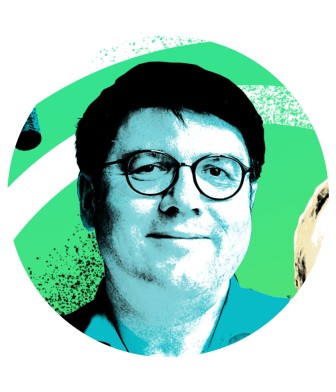
"We won’t abandon you - that is the signal from the city to the population."
The municipalities again reinforced Smart-City thinking by establishing the Digitalisation department. It is managed by Dirk Andres and cooperates closely with the municipal company KL.digital. Andres also recounts positive surprises when handling the coronavirus crisis from an administrative perspective. Staff members developed ideas about digital issues “that we weren’t even aware of”. Shortly before the spread of the virus made events impossible, nearly 300 citizens came to a residents’ meeting about the Smart City and 5G. Answers to the nearly 100 questions asked there about issues like local logistics, mobility solutions or 5G networks were published on the KL.digital digital website.
Digital citizen participation in Gera
This type of civic participation is also a top priority for the Smart Cities Project in Gera. Task forces came together from the semi-annual civic forums. Due to coronavirus measures, they meet via a municipal online platform. Citizens can use it to establish virtual rooms and invite people, also as a way of overcoming pandemic-related isolation. As new technologies were introduced over the course of the pandemic, there wasn’t really a “gentle transition” according to Thomas Schimmel, who is responsible for the Smart Cities Project: “In many areas we went straight from zero to digital.”
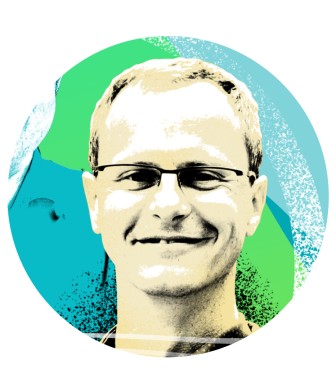
"Digitalisation makes it easier to handle crises."
Gera is one of the Smart Cities that is initially developing a digitalisation strategy. Nevertheless, they also want to “quickly implement pilot projects so that citizens also enjoy tangible benefits”, just like “lieblingsladen.gera”, which was integrated into the municipality’s online services during the crisis. What was initially conceived as a delivery service for goods and services during the lockdown is now intended to permanently add value for businesses and restaurants with additional digital offerings. The municipality also wants to use it to “keep purchasing power in the city”, says Thomas Schimmel.
Virtual market in Ulm
“Mein-Wochenmarkt.online” is the name of the order and delivery service that went online shortly before the lockdown began. During the lockdown, vendors from the weekly market in front of Ulm Minster church were able to use the website to sell groceries to customers who wanted to avoid going to the market due to risk of infection. So the market start-up also received support from the municipality. Sabine Meigel, Director of the city’s Digital Agenda department, talks about “strengthening the regional economy” and uses the weekly market as an example of the positive effects of the Smart Cities approach during the coronavirus crisis. “Good networking with academia, NGOs and start-ups” have already helped here. For example, Digital Agenda was able to hold an event on YouTube weeks before the German Federal Government’s Corona-Warn-App was introduced. It was a public workshop about the medical and privacy aspects of this smartphone app.
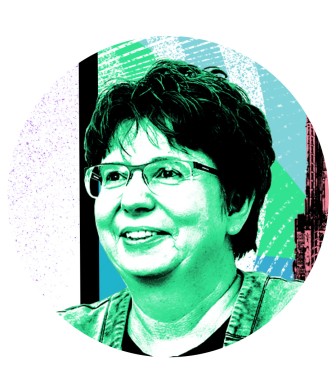
"We have to think more about future technologies."
Source
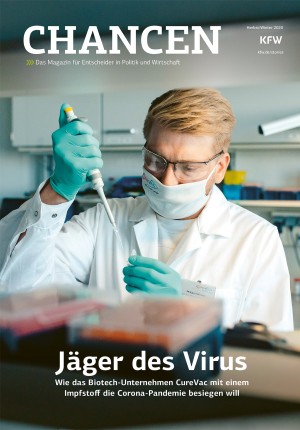
This article was published in the autumn/winter 2020 issue of Chancen magazine.
To German editionThe BigBlueButton video conference tool used in Ulm’s schools is also among other digital projects in the crisis. And along the Danube River, virtual neighbourhood meetings with other municipalities across borders were organised, called “Sharing beyond borders”. The Ulm Smart Cities strategy is changing as a result of experience of the crisis, says Sabine Meigel: “We are learning something new every day. We need to engage much more with technologies of the future, and not focus too much on what is already possible today.“
Published on KfW Stories: 5 November 2020.

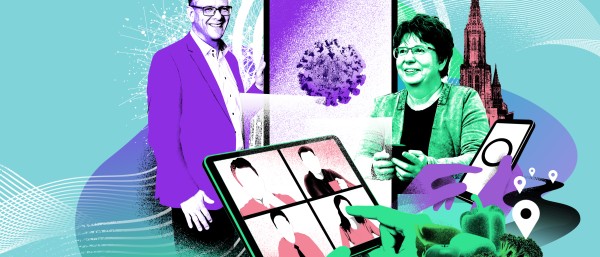
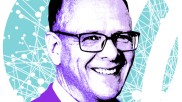

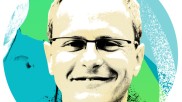
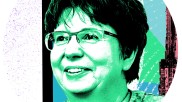
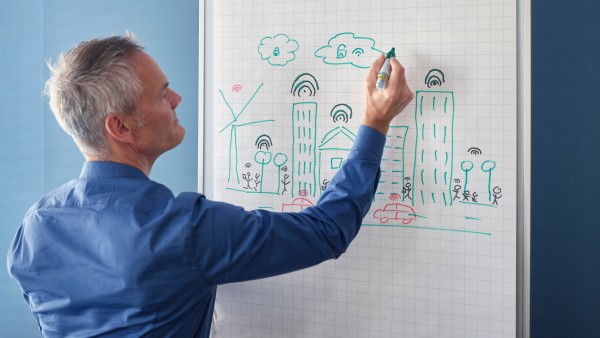
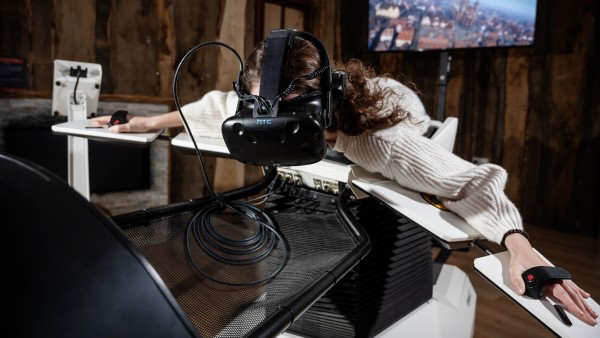
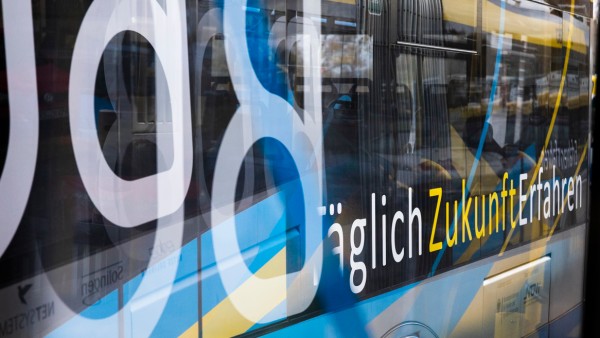
Data protection principles
If you click on one of the following icons, your data will be sent to the corresponding social network.
Privacy information